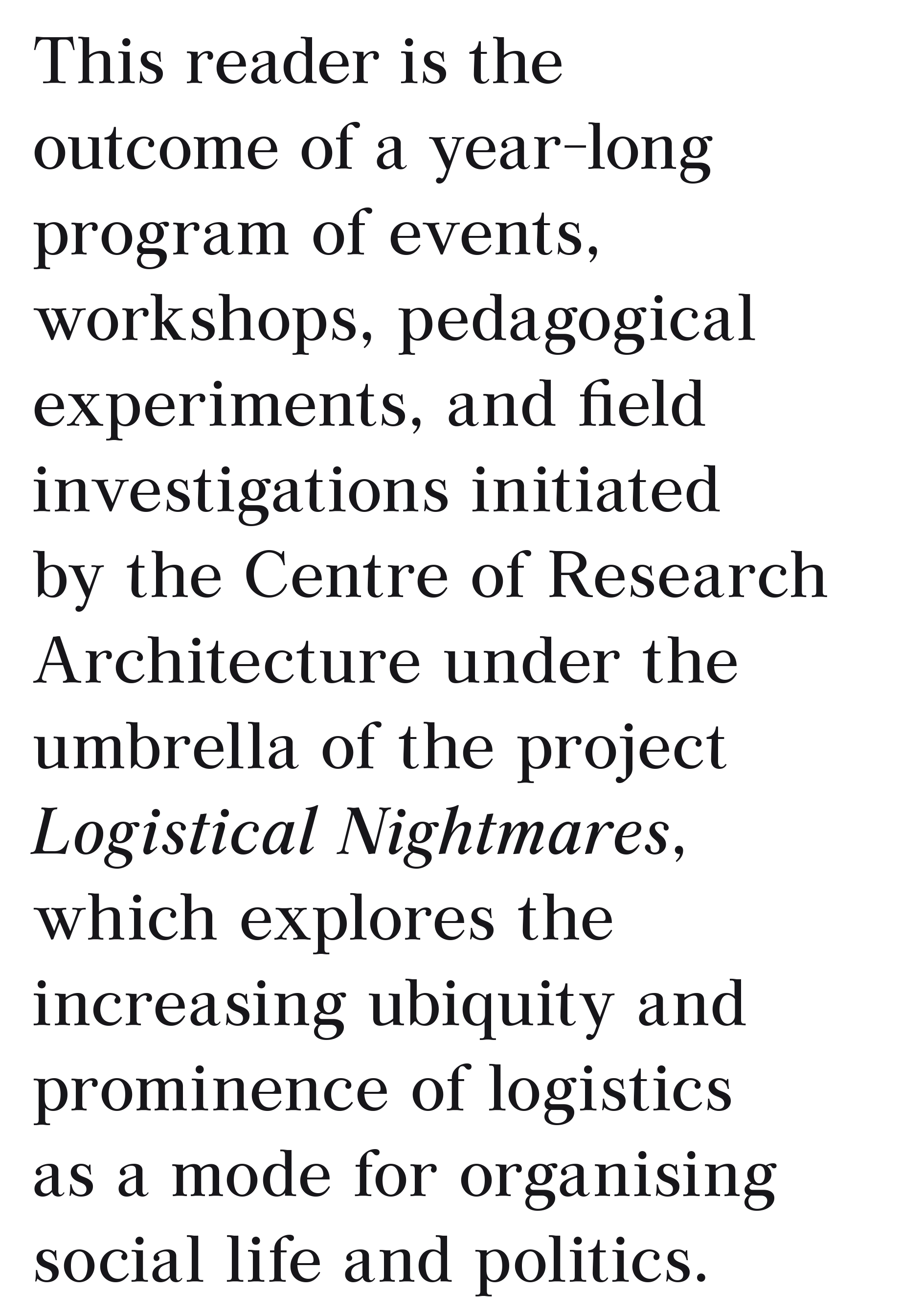FUTURELAND
08.14 – 12.14
The experimental documentary FUTURELAND produced by the MA students in Conflicts & Negotiations (2017-18) emerges out of fieldwork they conducted in the Port of Rotterdam, Europe’s largest cargo and container port, as well as individual research and collaborative writing that delved into the politics of our contemporary logistical condition. Organised by an elliptical structure, the documentary cross-cuts between temporalities and geographies to explore the ways in which the Port is deeply entangled with the histories of colonialism, the legacies of maritime labour, the advent of automation, the speculative fictions of global finance, the threat of sea level rise, and the ecological consequences of an infrastructural imagination that has carved a trading zone out of the liquid architecture of the sea. The documentary utilises a wide range of source material from webcam streams to archival documents in addition to footage, animations, field recordings, and voiceover narration produced by the students themselves.
Its title — FUTURELAND — derives from the main public entry point into the Port of Rotterdam where visitors depart on scheduled bus and boat tours. We too began our day on water touring the docked ships and observing the cranes as they manoeuvred their containers. “Ask me anything,” our guide enjoined us… when we paused to take pictures from our vantage point on the upper deck he resumed his running commentary. It was a recital scripted entirely in superlatives: the biggest, the tallest, the deepest, the heaviest, the largest, the greenest. Throughout the FutureLandvideo echoes of his speech come to act as a refrain that the various chapters utilise to call into question the official public narratives of the Port, which are ultimately countered by the students’ own insights and approach to their research materials.
In addition to exploring the logistical operations of the Port itself, students also bicycled around the adjacent industrial park documenting its petro-chemical storage, which constitutes some of the primary cargo that transits through the Port. Other students were able to interview Filipino mariners on shore-leave as well as dockworkers in a local pub. A representative from the labour union, who was deeply concerned about the loss of jobs both at sea and on land as a consequence of automation, was interviewed later in Amsterdam. The MA students were joined by our PhDs as well as invited guests: Stefan Helmreich, Heather Paxson, Giorgio Grappi, Víctor Muñoz Sanz, Evelina Gambino, and Oscar Pedraza. Christina Sharpe kindly agreed to act as a respondent to the first public screening of the documentary at Goldsmiths on 23 May 2018.Our work in the Netherlands was generously supported by the organisation and staff at the Sonic Acts Academy, Amsterdam 2018.
As a collaborative project, the resulting video documentary and companion reader exemplifies the spirit of peer-to-peer learning and stands as a significant set of documents to have emerged out of this year’s MA programme in Research Architecture
(Susan Schuppli, Director, Centre for Research Architecture)
